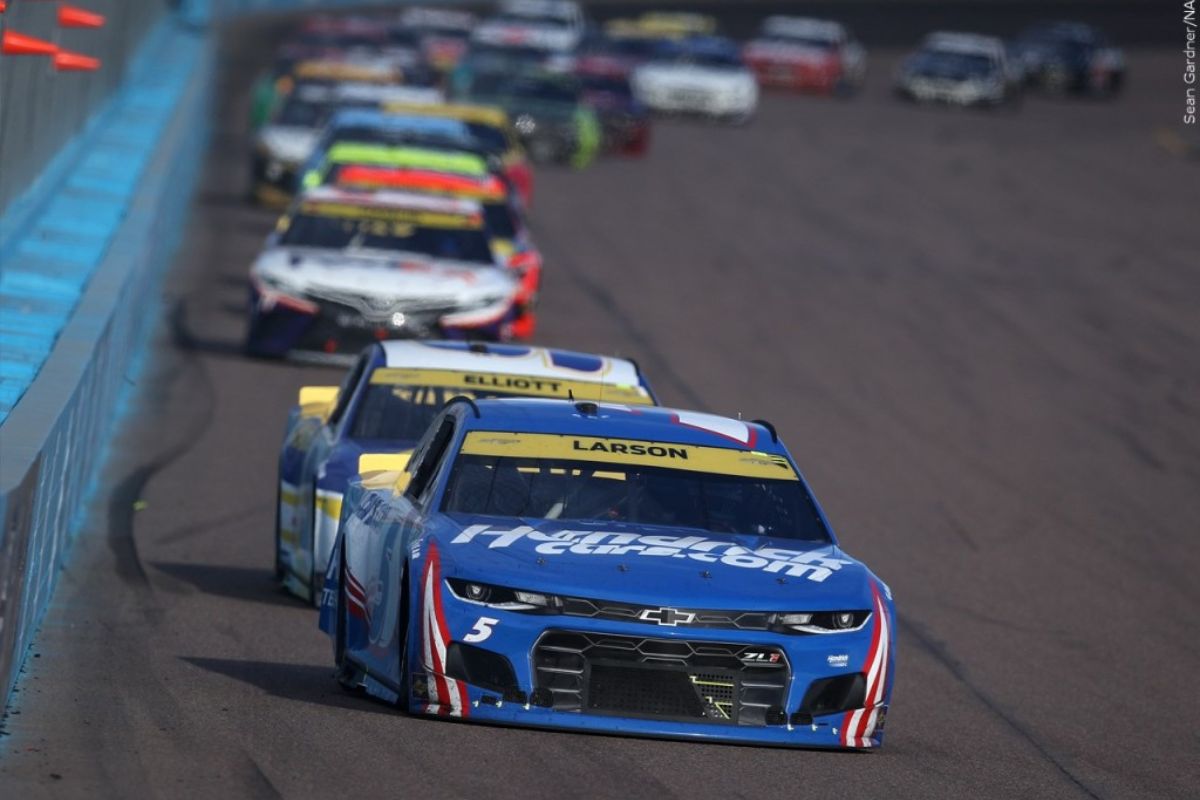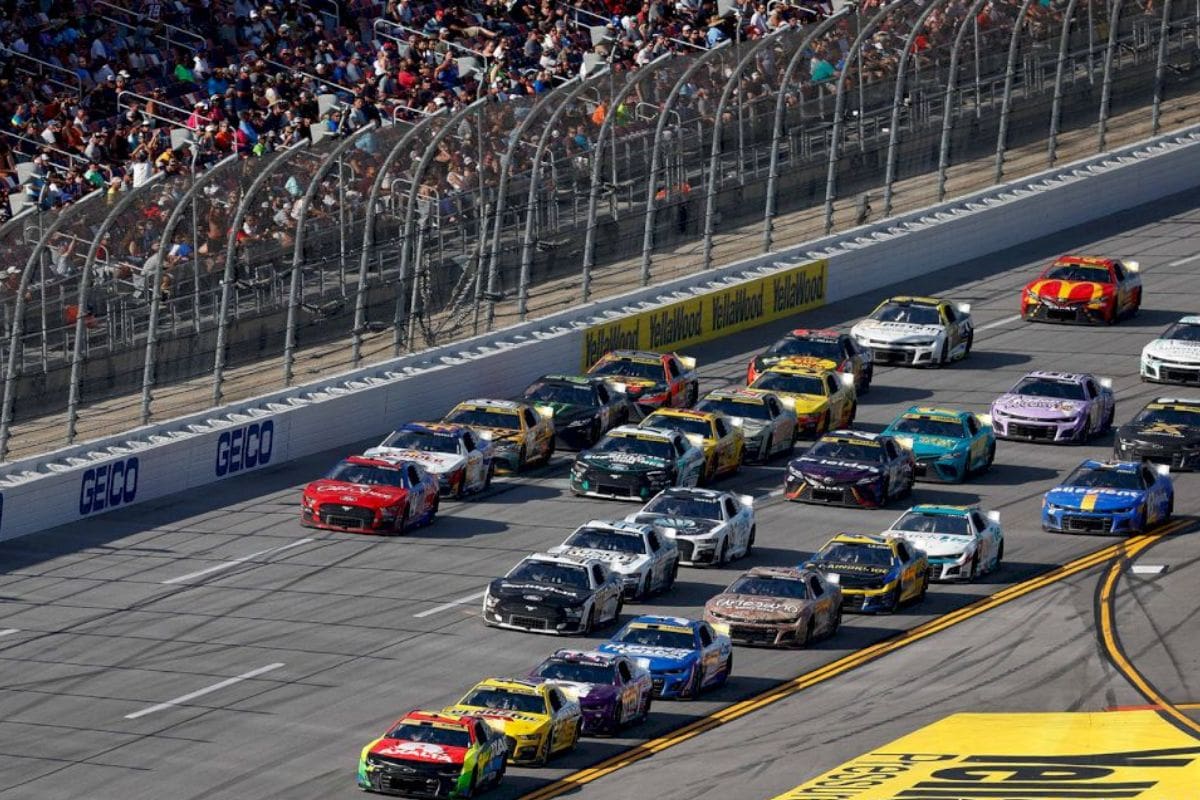Dale Earnhardt Jr. Uncovers NASCAR Charter Failures: Dale Earnhardt Jr. has recently highlighted the turmoil engulfing NASCAR’s charter system, as prominent teams like 23XI Racing and Front Row Motorsports express growing frustrations and withdraw from new contractual commitments. This resistance emphasizes a broader concern regarding the charter framework’s limitations, perceived as outdated compared to the evolving dynamics of other professional sports leagues. As charter values are projected to escalate considerably, the implications for NASCAR’s governance and competitive landscape merit closer examination, particularly in view of emerging calls for reform. What changes could reshape the future viability of the sport?
Key Highlights
- Major teams, including 23XI Racing, are rejecting new charter agreements due to perceived inequities and lack of meaningful negotiation opportunities.
- Dale Earnhardt Jr. highlights the outdated charter system, likening NASCAR’s growth potential to that of the NFL.
- Teams believe current charter terms do not adequately reflect their financial contributions and growth aspirations.
- Predictions suggest that charter values could rise to $125-$150 million with necessary reforms, attracting high-profile investors.
- The ongoing discontent may lead to fragmentation within NASCAR, as established teams push for a more equitable governance structure.
Dale Earnhardt Jr. Discusses NASCAR Charter Issues
What factors are contributing to the rising tension surrounding NASCAR’s charter agreements? The recent insights shared by Dale Earnhardt Jr. on his podcast, the Dale Jr. Download, highlight considerable discontent among teams regarding the current charter system.
The refusal of teams like 23XI Racing and Front Row Motorsports to sign these agreements emphasizes a critical disconnect between ownership aspirations and the existing contractual framework. Earnhardt’s analysis suggests that the charter agreements, initially designed to stabilize team operations and improve revenue sharing, are now perceived as restrictive.
Teams, particularly newcomers like 23XI Racing, recognize the immense growth potential in NASCAR but find themselves stifled by agreements that do not adequately reflect their investment and ambition. This sentiment reflects a broader frustration with a system that appears antiquated and misaligned with contemporary sporting dynamics, particularly when compared to the more lucrative and equitable frameworks seen in other leagues, such as the NFL.
The growing unease surrounding the charter agreements signals a crossroads for NASCAR. Teams that are enthusiastic to innovate and capitalize on new opportunities may feel compelled to challenge the status quo, leading to potential fragmentation within the sport.
As Earnhardt points out, the lack of a robust value proposition in the current agreements not only threatens team viability but also undermines the general competitiveness of NASCAR. If these issues remain unaddressed, the future landscape of NASCAR could face considerable upheaval, necessitating a reevaluation of how charters are structured and enforced.
Earnhardt’s Comparison and Future Predictions
Dale Earnhardt Jr.’s astute comparisons between NASCAR and more lucrative sports leagues highlights the potential for considerable growth within the racing series, contingent upon necessary reforms to the charter system. By referencing the soaring valuations of NFL franchises, Earnhardt demonstrates a compelling narrative about investment potential in NASCAR. The historical context he provides is remarkable; NFL teams that once sold for under a billion dollars are now valued in the billions. This path suggests that NASCAR could likewise experience a valuation surge, should it adapt its business model and governance structures.
“What a lot of investment firms and a lot of people, say like Michael Jordan and a lot of people in these investment firms considering NASCAR and certain entities like the Yankees and so forth that are looking into it, they’re looking at these big sports franchises that they’ve built and thinking how much higher of the value of this Major League Baseball team or this NFL team, where is the ceiling.”
“…NFL teams are selling for $6 billion. In the 90s, NFL teams were selling under a billion, $800-$600 million. Washington was sold to Dan Snyder for $800 [million] or something like that. I can’t remember, but it was like a huge number back in the day. Now that team just sold last year for 6 point something billion.” – jr
Currently, the entry point for owning a NASCAR team stands at approximately $24 million. Earnhardt posits that with tactical changes, valuations could rise to between $125 and $150 million. This prospect is particularly enticing for investors like Michael Jordan and numerous investment firms, who are increasingly eyeing the NASCAR landscape for opportunities. The clear contrast between existing valuations and potential future worth signals a considerable growth path that could attract a new class of stakeholders.
“If you’re one of those folks from that part of the world, you’re looking at NASCAR and going I can own a team for two dozen million or $24 million? There’s so much growth potential.”
“23XI believes that, but they cannot get there, they can’t get that growth potential unless NASCAR creates that value for them in this new agreement. That’s why they’re fighting.”
“…I will not be shocked if the charters go to at one day down the road, maybe in a very short period of time, maybe it might be five years, are $125, $150 million.” – jr
Earnhardt’s vision hinges on the premise that enhancing the value proposition for team owners through revised charter agreements will catalyze this growth. By creating a more equitable and lucrative environment, NASCAR can not only retain its current teams but also draw in high-profile investors from other successful sports leagues.
Resistance to New Charter Agreements
Maneuvering the complexities of NASCAR’s charter agreements reveals considerable resistance from teams enthusiastic for more favorable terms. The core of this reluctance lies in the perception of inadequate value creation within the current framework. Teams, including emerging entities like 23XI Racing, are vocal about their concerns, emphasizing that without a groundbreaking agreement, they cannot access their full growth potential.
The industry is rife with speculation that charters could escalate to valuations as high as $125 to $150 million in the coming years, should the necessary improvements be made. This anticipated surge in charter value highlights the urgency for NASCAR to innovate its agreements to reflect the evolving landscape of the sport.
Teams are increasingly aware that their financial success hinges on not just the ability to compete, but also on the structural support provided by the charter system. The resistance to signing current agreements stems from a broader tactical concern; teams are unwilling to commit to terms that do not align with their growth aspirations or the market’s potential.
As discussions unfold, the friction between established teams and NASCAR management demonstrates a critical juncture. The future of the sport may depend on reconciling these divergent interests. Ultimately, the push for more equitable and lucrative agreements emphasizes a pivotal moment in NASCAR’s evolution, as teams advocate for a structure that genuinely fosters their ambitions while sustaining competitive integrity.
23XI Racing’s Statement
In a bold move that highlights the ongoing tension surrounding NASCAR’s charter agreements, 23XI Racing has opted not to sign the new contracts proposed for the 2025-2031 seasons. The team’s official statement indicates serious concerns regarding the fairness and equity of the negotiation process. They emphasized a lack of opportunity to engage in meaningful discussions prior to the deadline imposed by NASCAR.
“23XI decided to not meet a NASCAR-imposed deadline last night to sign Charter agreements for its two cars for 2025-2031. 23XI’s position, as stated in a letter to NASCAR, is that we did not have an opportunity to fairly bargain for a new Charter contract.”
“We notified NASCAR what issues needed to be addressed, in writing, at the deadline. We are interested in engaging in constructive discussions with NASCAR to address these issues and move forward in a way that comes to a fair resolution, while strengthening the sport we all love.”
“At 23XI Racing, we remain committed to competing at the highest level while also standing firm in our belief that NASCAR should be governed by fair and equitable practices.” – 23XI Racing’s Statement
Key points from 23XI Racing’s statement include:
- Refusal to Sign: The team consciously chose not to meet the deadline for signing the charter agreements.
- Concerns Raised: They formally communicated specific issues needing resolution to NASCAR before the deadline.
- Desire for Constructive Dialogue: 23XI expressed interest in engaging with NASCAR to address concerns and find a fair resolution.
- Commitment to Fair Practices: The statement reiterated their dedication to competing at the highest level while advocating for equitable governance in the sport.
This decision by 23XI Racing not only highlights their commitment to fair practices but also reflects broader frustrations within the NASCAR community regarding the charter system.
As major teams grapple with these complex agreements, the implications for the sport’s future remain uncertain. The willingness of 23XI Racing to withhold participation in the charter system could signal a pivotal shift in how teams engage with NASCAR, potentially reshaping the landscape of competitive racing.
News in Brief: Dale Earnhardt Jr. Uncovers NASCAR Charter Failures
The current turmoil surrounding NASCAR’s charter agreements highlights considerable dissatisfaction among major teams, which perceive the existing system as restrictive and detrimental to growth. As financial projections for charter values escalate, the need for reform becomes increasingly urgent. The reluctance of teams like 23XI Racing and Front Row Motorsports to sign new contracts emphasizes the necessity for equitable governance and collaborative dialogue. Without meaningful changes, the future stability and competitiveness of NASCAR may be jeopardized, impacting the sport’s overall viability.
ALSO READ: Dale Earnhardt Jr.’s Friend Causing Financial Trouble: NASCAR’s Budget Blunder




